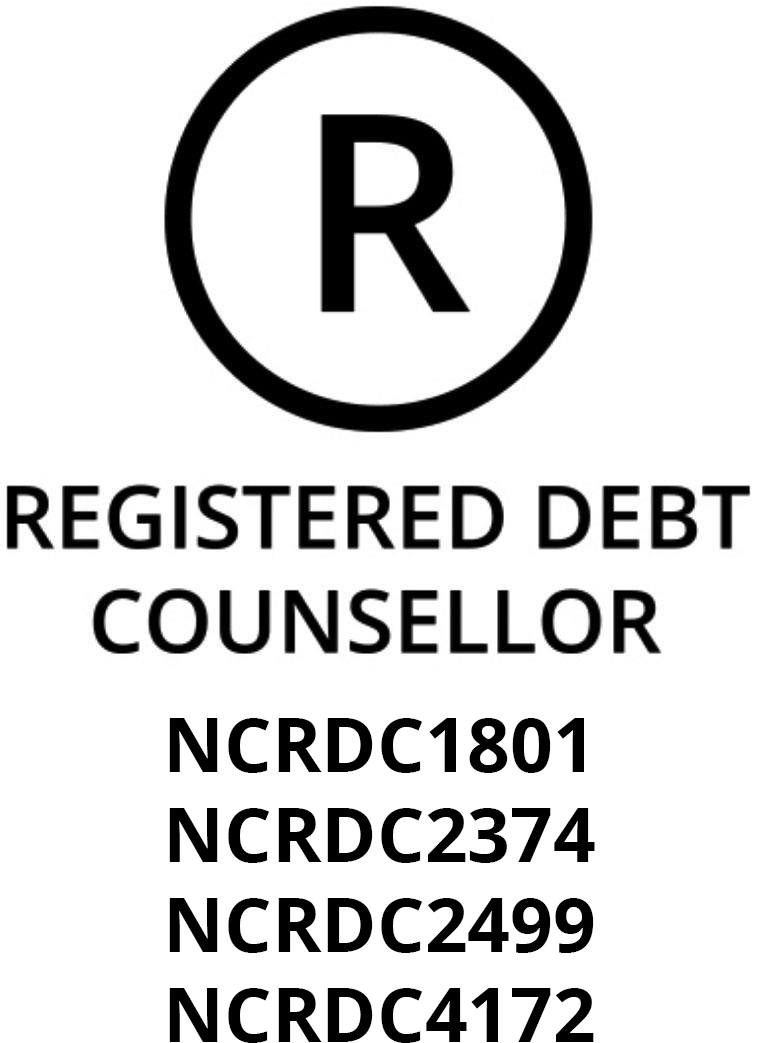Saving is very challenging for most South Africans. Spending money is what we all prefer to do. Too often, we spend beyond our means by using credit that we cannot afford to repay.
Statistics released by the South African Reserve Bank (SARB) last year confirm that South Africa has one of the worst savings rates in the world. South Africans don’t save for unforeseen expenses and neglect to plan adequately (if at all) for their retirement.
Learning to save is not easy and has to start with a change in your mindset and behaviour.
Here are three tips on how you can make this change for yourself while you are under debt counselling:
1. Educate yourself
Don’t be caught by fly-by-night lenders and their clever marketing tricks when you exit debt counselling. Know your rights and make sure you understand the basics of personal finance.
At DebtBusters we are seeing an increasing number of people under the age of 25 who are struggling with debt, with almost 30% of new DebtBusters clients under the age of 30. We believe this is because South Africans lack both the means and the foundations for basic financial management.
This paves the way to poor money management and develops bad financial habits later on, such as accruing debt and missing account payments. This inevitably leads to a situation individuals are subjected to more borrowing to repay existing debt and to meet day-to-day obligations.
You owe it to yourself and your children to become more financially savvy. Start by visiting DebtBusters or SmartCents here there is plenty of information to get you started.
2. Take control of your personal finances
Preparing a financial plan sounds like a big job. That's likely why most South Africans don’t have one. Creating one for yourself allows you to categorise what you want to achieve into short term and long term goals.
-
Your short term goals should include paying off unsecured debt like store accounts, credit cards and personal loans. Putting yourself under Debt counselling was an excellent way of taking control of your finances.
-
Your long term goals should include saving for retirement and unforeseen expenses, putting in place the correct insurance cover to protect your income from financial risk and gearing up to purchase assets. Just because you are under debt counselling, does not mean you cannot start planning your long term goals.
All plans have to start with a budget. A budget is a list of all your income, living expenses and debt repayments. Once complete, you can easily calculate whether or not you can afford to pay for everything from the money you earn and with no dependency on credit.
When you exit debt counselling, you do not want to be tempted to take out new unsecured debt. The best way to avoid this trap is by having a budget and a plan. Your budget should be updated monthly and must become a good financial habit.
Need debt counselling or consolidation?
Explore DebtBusters' solutions for reducing your interest rates and unlocking cash.
Find out moreOur financial planners at Insurance Busters are available to help you to prepare a financial plan with realistic financial goals. Give them a call on 0860 99 40 96.
3. Monitor and improve your credit health
If you are serious about owning a house or a car or replacing your car when you exit debt counselling, then you should be working hard to improve your credit health. In order to do this effectively, you should check your bureau data on a regular basis.
We recommend you get a new credit report every three months to make sure things are improving while you are under debt counselling. A credit report tracks your account activity, payments, and allows you to see what credit providers see on your profile, including your credit score.
Through our partnership with Kudough you can have access to a credit coach to help you map out your credit health goals that are linked to your long term financial goals.
DebtBusters can help you to sign up for this service. It’s only R10 a month. Your Kudough membership also gives you access to hundreds of discount partners which will also help you to save on expenses.
Some more tips to help you save everyday
Saving on everyday expenses will help you to free up some cash for your financial plan. Here are a few ideas to get you started:
-
Avoid using your vehicle to go to work every day, consider starting a car pooling service with people from work who live in the same area as you. This saves you on fuel and vehicle maintenance.
-
Avoid buying lunch every day at work, rather pack yourself a lunch.
-
Be a smart shopper and shop around for best prices — avoid buying extra produce simply because it is on sale or because you have a coupon.
-
Reduce banking costs by avoiding the use of ATM’s. It's cheaper to get cash back from instore checkpoints. Alco consider changing your bank account to a Bidvest Bank Account TM to avoid high bank charges
-
Save on your electricity bill by turning off lights and appliances when not using them. You can also ‘Go Green’ by purchasing energy saving appliances and using energy saving bulbs. In addition, switch off your geyser when it’s not in use
Refer friends that are struggling with debt
If you know someone that is struggling with their finances or too much debt**, please refer them to DebtBusters.** We would like to help as many South Africans as we can to take control of their finances.
Call our experts on 086 999 0606 or direct them to our website https://www.debtbusters.co.za so that they can fill out a free call back form.
Let us call you back
Fill out our form below to get a free call-back from one of our consultants to discuss your debt situation.
Jump to form




